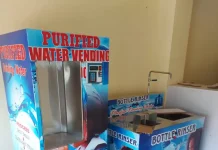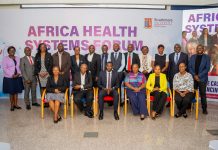By Frank Okello
Cities across Africa are increasingly turning to gender-responsive, nature-based solutions (NbS) to confront mounting climate change challenges.
This is according to experts who spoke during the Green-Gray Infrastructure Accelerator Webinar Series. The session, moderated by Lisa Beyer, brought together leading voices in urban environmental management, including Gugu Zondi of Johannesburg City Parks and Zoo (JCPZ), Philbert Tuyisabe from the ARCOS Network in Kigali, and Dr. Asfaw Kebede of Haramaya University, Ethiopia. The panelists outlined innovative approaches that integrate ecological restoration, gender equity, and urban resilience financing.
The webinar spotlighted Sustainable Urban Nature-Based Catchment Solutions for Africa (SUNCASA), a program operating in Johannesburg, Kigali, and Dire Dawa. The initiative emphasizes the removal of invasive plant species, reforestation, agroforestry, and community participation in restoring river catchments and urban ecosystems.
In Johannesburg, JCPZ has taken the lead in managing public open spaces and more than 30 water bodies, focusing on invasive alien removal and indigenous planting. “We are the voice of the environment,” Zondi emphasized, describing Johannesburg as “the New York of South Africa” where urban growth increasingly puts pressure on rivers and catchments such as the Jukskei and Klip.
Kigali’s experience, shared by Tuyisabe, highlighted impressive results: the planting of over 61,000 urban trees, the establishment of 1,344 hectares under agroforestry, and the distribution of nearly 47,000 fruit trees to households. The ARCOS-led SUNCASA model also integrates women and marginalized groups in every stage of the project to build inclusive climate resilience.
Meanwhile, Dr. Kebede outlined Ethiopia’s interventions in flood-prone Dire Dawa, particularly along the Dechatu River. By planting one million trees and restoring 823 hectares, the program has benefited more than 220,000 residents, reducing flood hazards while increasing urban green cover.
Collectively, the panel stressed that while progress has been made, long-term success depends on financing, policy alignment, and sustained community ownership. Partnerships with international institutions such as the World Resources Institute, the International Institute for Sustainable Development, and local grassroots groups remain central to scaling these initiatives across Africa’s cities.






